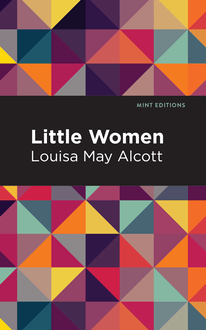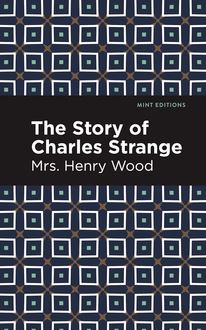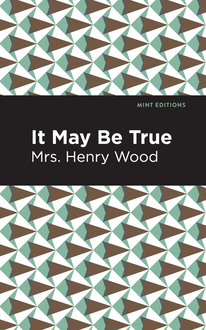-
 Univers
Univers
-
 Ebooks
Ebooks
-
 Livres audio
Livres audio
-
 Presse
Presse
-
 Podcasts
Podcasts
-
 BD
BD
-
 Documents
Documents
-
- Cours
- Révisions
- Ressources pédagogiques
- Sciences de l’éducation
- Manuels scolaires
- Langues
- Travaux de classe
- Annales de BEP
- Etudes supérieures
- Maternelle et primaire
- Fiches de lecture
- Orientation scolaire
- Méthodologie
- Corrigés de devoir
- Annales d’examens et concours
- Annales du bac
- Annales du brevet
- Rapports de stage
La lecture à portée de main

Vous pourrez modifier la taille du texte de cet ouvrage
Découvre YouScribe en t'inscrivant gratuitement
Je m'inscrisDécouvre YouScribe en t'inscrivant gratuitement
Je m'inscrisEn savoir plus
Vous pourrez modifier la taille du texte de cet ouvrage
En savoir plus

Description
Red Pottage (1899) is novel by Mary Cholmondeley. Partly based on her experience as an artist from a devoutly religious family, Red Pottage is a story of friendship, romance, and identity that faced backlash from critics for its controversial portrayal of female sexuality. Satirical and deeply observant of the hypocrisies of Victorian society, Red Pottage was an international bestseller in its time and was adapted into a 1918 silent film starring Mary Dibley, C. Aubrey Smith, and Gerald Ames. “It was a hot night in June. Hugh had thrown back his overcoat, and the throng of passers-by in the street could see, if they cared to see, ‘the glass of fashion’ in the shape of white waistcoat and shirt front, surmounted by the handsome, irritated face of their owner, leaning back with his hat tilted over his eyes.” Handsome and magnanimous, Hugh Scarlett has never had a hard time with romance. Having recently ended an affair with a local aristocrat, he has caught the eye of Rachel West, a young heiress who seems unaware of his reputation as a womanizer. Rachel, both naïve and strong-willed, shares everything with her friend Hester Gresley, a pastor’s daughter who longs to make it as a professional writer. As she struggles to overcome the animosity of her brother, a self-righteous minister, Hester looks to Rachel for guidance. Funny and tragic, Red Pottage is a timeless story of friendship that explores the lives of women in a world controlled by men. With a beautifully designed cover and professionally typeset manuscript, this edition of Mary Cholmondeley’s Red Pottage is a classic work of British literature reimagined for modern readers.
Sujets
Informations
| Publié par | Mint Editions |
| Date de parution | 21 juin 2021 |
| Nombre de lectures | 0 |
| EAN13 | 9781513293998 |
| Langue | English |
| Poids de l'ouvrage | 1 Mo |
Informations légales : prix de location à la page 0,0500€. Cette information est donnée uniquement à titre indicatif conformément à la législation en vigueur.
Extrait
Red Pottage
Mary Cholmondeley
Red Pottage was first published in 1899.
This edition published by Mint Editions 2021.
ISBN 9781513291147 | E-ISBN 9781513293998
Published by Mint Editions®
minteditionbooks.com
Publishing Director: Jennifer Newens
Design & Production: Rachel Lopez Metzger
Project Manager: Micaela Clark
Typesetting: Westchester Publishing Services
C ONTENTS I II III IV V VI VII VIII IX X XI XII XIII XIV XV XVI XVII XVIII XIX XX XXI XXII XXIII XXIV XXV XXVI XXVII XXVIII XXIX XXX XXXI XXXII XXXIII XXXIV XXXV XXXVI XXXVII XXXVIII XXXIX XL XLI XLII XLIII XLIV XLV XLVI XLVII XLVIII XLIX L LI LII LIII C ONCLUSION P OSTSCRIPT
I
In tragic life, God wot,
No villain need be! Passions spin the plot:
We are betray’d by what is false within.
— G EORGE M EREDITH
“I can’t get out,” said Sterne’s starling, looking through the bars of his cage.
“I will get out,” said Hugh Scarlett to himself, seeing no bars, but half conscious of a cage. “I will get out,” he repeated, as his hansom took him swiftly from the house in Portman Square, where he had been dining, towards that other house in Carlton House Terrace, whither his thoughts had travelled on before him, out-distancing the trip-clip-clop, trip-clip-clop of the horse.
It was a hot night in June. Hugh had thrown back his overcoat, and the throng of passers-by in the street could see, if they cared to see, “the glass of fashion” in the shape of white waistcoat and shirt front, surmounted by the handsome, irritated face of their owner, leaning back with his hat tilted over his eyes.
Trip-clip-clop went the horse.
A great deal of thinking may be compressed into a quarter of an hour, especially if it has been long eluded.
“I will get out,” he said again to himself with an impatient movement. It was beginning to weary him, this commonplace intrigue which had been so new and alluring a year ago. He did not own it to himself, but he was tired of it. Perhaps the reason why good resolutions have earned for themselves such an evil repute as paving-stones is because they are often the result, not of repentance, but of the restlessness that dogs an evaporating pleasure. This liaison had been alternately his pride and his shame for many months. But now it was becoming something more—which it had been all the time, only he had not noticed it till lately—a fetter, a clog, something irksome, to be cast off and pushed out of sight. Decidedly the moment for the good resolution had arrived.
“I will break it off,” he said again. “Thank Heaven, not a soul has ever guessed it.”
How could any one have guessed it?
He remembered the day when he had first met her a year ago, and had looked upon her as merely a pretty woman. He remembered other days, and the gradual building up between them of a fairy palace. He had added a stone here, she a stone there, until suddenly it became—a prison. Had he been tempter or tempted? He did not know. He did not care. He wanted only to be out of it. His better feelings and his conscience had been awakened by the first touch of weariness. His brief infatuation had run its course. His judgment had been whirled—he told himself it had been whirled, but it had really only been tweaked—from its centre, had performed its giddy orbit, and now the check-string had brought it back to the point from whence it had set out, namely, that she was merely a pretty woman.
“I will break with her gradually,” he said, like the tyro he was, and he pictured to himself the wretched scenes in which she would abuse him, reproach him, probably compromise herself, the letters she would write to him. At any rate, he need not read them. Oh! how tired he was of the whole thing beforehand. Why had he been such a fool? He looked at the termination of the liaison as a bad sailor looks at an inevitable sea passage at the end of a journey. It must be gone through, but the prospect of undergoing it filled him with disgust.
A brougham passed him swiftly on noiseless wheels, and the woman in it caught a glimpse of the high-bred, clean-shaved face, half savage, half sullen, in the hansom.
“Anger, impatience, and remorse,” she said to herself, and finished buttoning her gloves.
“Thank Heaven, not a soul has ever guessed it,” repeated Hugh, fervently, as the hansom came suddenly to a stand-still.
In another moment he was taking Lady Newhaven’s hand as she stood at the entrance of her amber drawing-room beside a grove of pink orchids.
He chatted a moment, greeted Lord Newhaven, and passed on into the crowded rooms. How could any one have guessed it? No breath of scandal had ever touched Lady Newhaven. She stood beside her pink orchids, near her fatigued-looking, gentle-mannered husband, a very pretty woman in white satin and diamonds. Perhaps her blond hair was a shade darker at the roots than in its waved coils; perhaps her blue eyes did not look quite in harmony with their blue-black lashes; but the whole effect had the delicate, conventional perfection of a cleverly touched-up chromo-lithograph. Of course, tastes differ. Some people like chromo-lithographs, others don’t. But even those who do are apt to become estranged. They may inspire love, admiration, but never fidelity. Most of us have in our time hammered nails into our walls which, though they now decorously support the engravings and etchings of our maturer years, were nevertheless originally driven in to uphold the cherished, the long since discarded chromos of our foolish youth.
The diamond sun upon Lady Newhaven’s breast quivered a little, a very little, as Hugh greeted her, and she turned to offer the same small smile and gloved hand to the next comer, whose name was leaping before him from one footman to another.
“Mr. Richard Vernon.”
Lady Newhaven’s wide blue eyes looked vague. Her hand hesitated. This strongly built, ill-dressed man, with his keen, brown, deeply scarred face and crooked mouth, was unknown to her.
Lord Newhaven darted forward.
“Dick!” he exclaimed, and Dick shot forth an immense mahogany hand and shook Lord Newhaven’s warmly.
“Well,” he said, after Lord Newhaven had introduced him to his wife, “I’m dashed if I knew who either of you were. But I found your invitation at my club when I landed yesterday, so I decided to come and have a look at you. And so it is only you, Cackles, after all”—(Lord Newhaven’s habit of silence had earned for him the sobriquet of “Cackles”)—“I quite thought I was going into—well, ahem!—into society. I did not know you had got a handle to your name. How did you find out I was in England?”
“My dear fellow, I didn’t,” said Lord Newhaven, gently drawing Dick aside, whose back was serenely blocking a stream of new arrivals. “I fancy—in fact, I’m simply delighted to see you. How is the wine getting on? But I suppose there must be other Dick Vernons on my wife’s list. Have you the card with you?”
“Rather,” said Dick; “always take the card with me since I was kicked out of a miner’s hop at Broken Hill because I forgot it. ‘No gentleman will be admitted in a paper shirt’ was mentioned on it, I remember. A concertina, and candles in bottles. Ripping while it lasted. I wish you had been there.”
“I wish I had.” Lord Newhaven’s tired, half-closed eye opened a little. “But the end seems to have been unfortunate.”
“Not at all,” said Dick, watching the new arrivals with his head thrown back. “Fine girl that; I’ll take a look at the whole mob of them directly. They came round next day to say it had been a mistake, but there were four or five cripples who found that out the night before. Here is the card.”
Lord Newhaven glanced at it attentively, and then laughed.
“It is four years old,” he said; “I must have put you on my mother’s list, not knowing you had left London. It is in her writing.”
“I’m rather late,” said Dick, composedly; “but I am here at last. Now, Cack—Newhaven, if that’s your noble name—as I am here, trot out a few heiresses, would you? I want to take one or two back with me. I say, ought I to put my gloves on?”
“No, no. Clutch them in your great fist as you are doing now.”
“Thanks. I suppose, old chap, I’m all right? Not had on an evening-coat for four years.”
Dick’s trousers were too short for him, and he had tied his white tie with a waist to it. Lord Newhaven had seen both details before he recognized him.
“Quite right,” he said, hastily. “Now, who is to be the happy woman?”
Dick’s hawk eye promenaded over the crowd in the second room, in the door-way of which he was standing.
“That one,” he said; “the tall girl in the green gown talking to the Bishop.”
“You have a wonderful eye for heiresses. You have picked out the greatest in London. That is Miss Rachel West. You say you want two.”
“One at a time, thanks. I shall take her down to supper. I suppose—er—there is supper at this sort of thing, isn’t there?”
“Of a kind. You need not be afraid of the claret; it isn’t yours.”
“Catch you giving your best at a crush,” retorted Dick. “The Bishop’s moving. Hurry up.”
II
But as he groped against the wall, two hands upon him fell,
The King behind his shoulder spake: “Dead man, thou dost not well.”
— R UDYARD K IPLING
Hugh had gone through the first room, and, after a quarter of an hour, found himself in the door-way of the second. He had arrived late, and the rooms were already thinning.
A woman in a pale-green gown was standing near the open window, her white profile outlined against the framed darkness, as she listened with evident amusement to the tall, ill-dressed man beside her.
Hugh’s eyes lost the veiled scorn with which it was their wont to look at society and the indulgent patronage which lurked in them for pretty women.
Rachel West slowly turned her face towards him without seeing him, and his heart leaped. She was not beautiful except with the beauty of health, and a certain dignity of carriage which is the outcome of a head and hands and body that are at unity with each other, and with a mind ab
Attention
En entrant sur cette page, vous certifiez :
- 1. avoir atteint l'âge légal de majorité de votre pays de résidence.
- 2. avoir pris connaissance du caractère érotique de ce document.
- 3. vous engager à ne pas diffuser le contenu de ce document.
- 4. consulter ce document à titre purement personnel en n'impliquant aucune société ou organisme d'État.
- 5. vous engager à mettre en oeuvre tous les moyens existants à ce jour pour empêcher n'importe quel mineur d'accéder à ce document.
- 6. déclarer n'être choqué(e) par aucun type de sexualité.
YouScribe ne pourra pas être tenu responsable en cas de non-respect des points précédemment énumérés. Bonne lecture !
-
 Univers
Univers
-
 Ebooks
Ebooks
-
 Livres audio
Livres audio
-
 Presse
Presse
-
 Podcasts
Podcasts
-
 BD
BD
-
 Documents
Documents
-
Jeunesse
-
Littérature
-
Ressources professionnelles
-
Santé et bien-être
-
Savoirs
-
Education
-
Loisirs et hobbies
-
Art, musique et cinéma
-
Actualité et débat de société
-
Jeunesse
-
Littérature
-
Ressources professionnelles
-
Santé et bien-être
-
Savoirs
-
Education
-
Loisirs et hobbies
-
Art, musique et cinéma
-
Actualité et débat de société
-
Actualités
-
Lifestyle
-
Presse jeunesse
-
Presse professionnelle
-
Pratique
-
Presse sportive
-
Presse internationale
-
Culture & Médias
-
Action et Aventures
-
Science-fiction et Fantasy
-
Société
-
Jeunesse
-
Littérature
-
Ressources professionnelles
-
Santé et bien-être
-
Savoirs
-
Education
-
Loisirs et hobbies
-
Art, musique et cinéma
-
Actualité et débat de société
- Cours
- Révisions
- Ressources pédagogiques
- Sciences de l’éducation
- Manuels scolaires
- Langues
- Travaux de classe
- Annales de BEP
- Etudes supérieures
- Maternelle et primaire
- Fiches de lecture
- Orientation scolaire
- Méthodologie
- Corrigés de devoir
- Annales d’examens et concours
- Annales du bac
- Annales du brevet
- Rapports de stage













